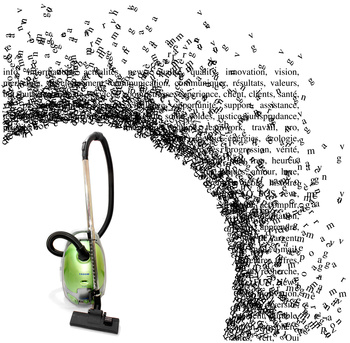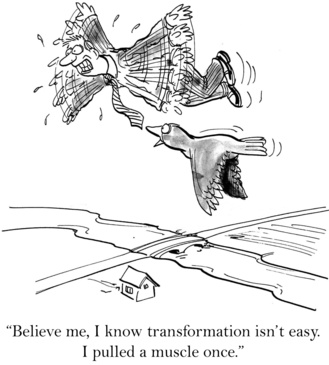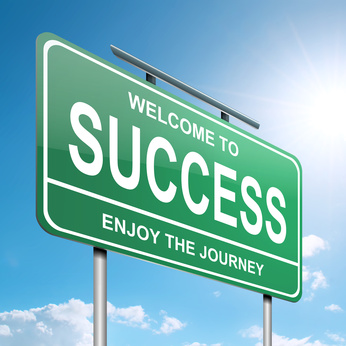In today’s guest post Lorraine Hirst, who coaches about emotional resilience, shares her experience and knowledge.

Helicopters, wacky warehouses and self-stroking!
by Lorraine Hirst
And so begins the countdown to Chris… to Chris…I can’t even write the word! Safe to say that it’s often a busy time of year, especially for parents, and it just gets busier.
My personal challenge (and perhaps yours too) is to stay calm, not become overwhelmed, plan ahead and find a place in my mind that can handle work and all the other stuff that happens at this time of year. As the general manager (GDB some might say) of my own business and my home, there’s a lot to handle, as well as managing other roles, namely wife, mum, daughter and friend, etc, etc.
My work is coaching families, kids and professionals with emotional resilience and, like everyone, I have days where my resilience is low, especially those days/weeks when everything you plan gets messed up and side-walled and a few other grenades get thrown in to make life just that bit more unpredictable…!
So what have I learned that is going to help me stay present, sane and move forward with all aspects of life and that you might find helpful, too? Well, the clue’s in the title (and self-stroking in this context is not dodgy or anything to do with shades of any grey, I promise – or perhaps I should say, sorry to those who were expecting something juicy..!). A word of warning though, these ideas are based on my Transactional Analysis (TA) training, coaching families, personal experience and one ‘wacky’ dream!
1. Getting in the helicopter
I’m not talking here about ‘helicopter parenting’, as this form of over or pushy parenting has, possibly quite rightly, a bad name. I’m talking here about taking the meta-perspective. Some people actually imagine themselves in a helicopter, going up and viewing the terrain. Mine is more of a sturdy air-balloon basket, but it’s whatever helps to give you a view or sense of something from a higher level. Ah, but it’s good to be ‘grounded’ more of the time, I hear myself saying. I think of it as an ‘out of body’ experience, without getting too spiritual about it. That is, I give myself permission to take another view, to observe, to listen and to check out what else is going on; to notice what am I thinking and what emotion, thought or reaction is this situation eliciting in me? It’s a kind of in-the-moment reflection.
Personally, I love the feeling of my balloon basket (with power steering and X-box-style controls) and I like the view, so it’s certainly a calm place to be and there’s loads of learning in what I notice from this position. This can be useful in both client work and for everyday situations – and mine even takes passengers!
2. Finding your way around (or out of) the warehouse
Whether your nightmare or scary imaginary space is a warehouse, maze, wood or somewhere else, there is something about trusting that you can find your way and not being afraid to ask for help. My dream was about being lost in a warehouse. What did I say to myself or do? I got in a vehicle that could go up and down (I think the correct name for this in a warehouse is a llop but it became my balloon basket later…) so that I could see above all the high aisles and boxes, find the windows and driveways to other rooms – and other worlds where I found help, support and my own power or potency.
Sticking with the metaphor, as dreams are our window to the sub-conscious, I had only to see the way forward and then I was magically transported to where I wanted to go (bit like teleportation). My suggestion here is that when we think we are lost, there is another way if we expand our ‘frame of reference’ and we need only observe ‘what is’ and this will, in turn, create a metaphorical space for change to occur. We are not required to jump to ‘fixing’ or to finding a solution straight away. If we do, we miss out the vital stage of sitting with or understanding the significance of what is.
3. Applying different strokes
Strokes are a TA concept. They are the recognition, attention or responsiveness that one person gives to another. As humans we hunger for recognition and depending on the types or frequency of the strokes we get as children, this will create the type and volume of strokes we crave as adults. We may also distort strokes from others to fit with the ones we are used to, along the spectrum from positive, mixed to negative strokes. In other words someone could begin giving us a really positive stroke, without any ulterior meaning, such as, ‘That colour really suits you’, and, if we are used to lots of mixed strokes (the most complex and confusing kinds!), we might receive this as, ‘Wow, you look a lot better today than you usually look!’
Strokes affect and create what we think of as our self-esteem. Low self-esteem is often an issue for many of the children I work with, and may be the case for your some of your coachees. My point here is not to think about how we can help clients, although this could be the net effect, but to think about our own ‘stroke quotient’ and how we can get or give ourselves stokes that keep us topped up in times of pressure or when work is a bit slow.
Affirmations, body work, a good giggle with friends, reading your CV, writing down compliments, all of these can boost our self-esteem, which helps with our ability to be confident and ultimately deal with what life brings us, in fact it helps us to not only survive but to enjoy the ride! This is a must for parents, especially at this time of year, I reckon. Moreover, children will have healthy stroke quotients and good self-esteem. I’m sure a few managers and team leaders would benefit from thinking about the stroke culture in their teams, too.
Before I end this piece, I must credit Rosemary Napper – TAWorks, Jean I Clarke and of course Eric Berne, the godfather of TA, for inspiring this piece and probably having some effect on my wacky dreams!
Happy Helicoptering!
Lorraine Hirst
Way2be.me – Founder and emotional resilience coach and trainer
About the Authors
 Lorraine is passionate about resilience as a key component in a child’s mental toolbox and as a prerequisite to achievement, whatever that might be for that child. Lorraine delivers emotional resilience-building programmes, known as Way2be.me, in schools and runs workshops for parents and teams. She also works with other creative practitioners to deliver peer mentoring, after-school and holiday clubs, transition projects and targeted programmes for children who are at risk of not meeting their potential or those who need a confidence boost.
Lorraine is passionate about resilience as a key component in a child’s mental toolbox and as a prerequisite to achievement, whatever that might be for that child. Lorraine delivers emotional resilience-building programmes, known as Way2be.me, in schools and runs workshops for parents and teams. She also works with other creative practitioners to deliver peer mentoring, after-school and holiday clubs, transition projects and targeted programmes for children who are at risk of not meeting their potential or those who need a confidence boost.
Being an emotionally resilient parent, carer or educator is vitally important. Therefore, Lorraine also offers emotional wellbeing sessions for school staff, including school leadership teams. She is has an interest in group theory and context, and works a lot with families and teams where the emphasis is not only on the individual but on the dynamics of the whole group or the effect of the culture within which they are operating.
You can find Lorraine at her website www.way2be.me, or via Linked In.
Helicopter Image © Maa-illustrations | Stock Free Images & Dreamstime Stock Photos


 My name is Angus MacLennan and I am a Coach delivering practical Business Support to Business Owners – specialising in small to medium size businesses.
My name is Angus MacLennan and I am a Coach delivering practical Business Support to Business Owners – specialising in small to medium size businesses.

 Dr Jane Lewis has been coaching since 1998, following outplacement coaching which helped her determine what she really wanted to do when she grew up. She specialises in helping women sort out their careers – whether they are returning from a career break, feeling lost, or simply want a new job. She also works as an HR consultant and trainer.
Dr Jane Lewis has been coaching since 1998, following outplacement coaching which helped her determine what she really wanted to do when she grew up. She specialises in helping women sort out their careers – whether they are returning from a career break, feeling lost, or simply want a new job. She also works as an HR consultant and trainer.









 Lorraine is passionate about resilience as a key component in a child’s mental toolbox and as a prerequisite to achievement, whatever that might be for that child. Lorraine delivers emotional resilience-building programmes, known as Way2be.me, in schools and runs workshops for parents and teams. She also works with other creative practitioners to deliver peer mentoring, after-school and holiday clubs, transition projects and targeted programmes for children who are at risk of not meeting their potential or those who need a confidence boost.
Lorraine is passionate about resilience as a key component in a child’s mental toolbox and as a prerequisite to achievement, whatever that might be for that child. Lorraine delivers emotional resilience-building programmes, known as Way2be.me, in schools and runs workshops for parents and teams. She also works with other creative practitioners to deliver peer mentoring, after-school and holiday clubs, transition projects and targeted programmes for children who are at risk of not meeting their potential or those who need a confidence boost.